-
Posts
793 -
Joined
-
Last visited
Content Type
Events
Forums
Downloads
Quizzes
Gallery
Blogs
Posts posted by fxm88
-
-
Don't knock NLP! I read a book about it on my flight to Thailand and I tell you it was like magic: I had to beat the girls away with a stick! (And most of them didn't even seem to understand English, go figure.)
-
No Michelin guide? No Zagat survey? No Fodor's? Forget the mega-projects, what Bangkok really needs is a decent restaurant guide!
-
Where are they? I do not remember seeing a single one.....? CHeers!
http://www.2bangkok.com/2bangkok/buildings/cycle/cycle.shtml has some excellent pics from last year. Are all the bike paths like this?
-
http://www.wangdermpalace.com/kingtaksin/e...ltifarious.html
Control of manpower, or phrai, was central to the administration of the country. The phrai system broke down when Ayutthaya fell to the Burmese. Titled officials took the opportunity to pass phrai luang (the king's soldiers) off as their own men, depriving the country of labor and tax. King Taksin therefore, had the phrai system revived. He ordered that all phrai luang and phrai som (fresh recruits) have their wrist tattooed. This was the first time that men in every division and department were required to be tattooed.
http://www.google.com/search?q=cache:fTajQ...99/cairo-04.pdf
The main system of population registration was the compilation of lists of phrai. All men aged 18 to 60 who were not slaves were required to register as phrai. These men were supposed to carry out 3 to 6 months of corvée each year for local nobles or the king, and to serve in the army at times of war. Lists of phrai were not centralised. Instead, nobleman or government departments all had their own separate lists. The phrai system was also not territorial. Different men in the same village, or even in the same household, could owe their ervices to different masters (Piyachat 1983: 13, 19; Terweil 1989: 277-8).
Anyone have access to a library?
Reid, Anthony, ed. Slavery, Bondage and Emancipation in Southeast Asia. New York: St. Martin's Press, 1983.
Feeny, David. “The Demise of Corvee and Slavery in Thailand, 1782-1913.” In Martin A. Klein, ed. Breaking the Chains: Slavery, Bondage, and Emancipation in Modern Africa and Asia. Madison: University of Wisconsin Press, 1993, 83-111.
Turton, Andrew. “Thai institutions of slavery.” In Georges Condominas, ed. Formes extrêmes de dépendance: Contributions à l'étude de l'esclavage en Asie du Sud-Est. Paris: Ecole des hautes études en sciences sociales, 1998, 411-57. (Revised from a previous article in James L. Watson, ed. Asian and African Systems of Slavery. Berkeley: University of California Press, 1980, 251-92).
Bowie, Katherine A. “Slavery in Nineteenth-Century North Thailand.” In E. Paul Durrenberger, ed. State Power and Culture in Thailand. New Haven: Yale Southeast Asia Studies Monographs 44, 1996, 100-138.
Thanet Aphornsuvan. “Slavery and Modernity: Freedom in the Making of Modern Siam.” In David Kelly and Anthony Reid, eds. Asian Freedoms: The Idea of Freedom in East and Southeast Asia. Cambridge University Press, 1998, 161-86.
Lehman, F.K. (Chit Laing). “Freedom and bondage in traditional Burma and Thailand.” Journal of Southeast Asian Studies 15.2 (1984), 233-44.
Source: http://www.google.com/search?q=cache:zrRqv...228readings.doc
Also, "Siamese 'slavery' the institution and its abolition", by Chatchai Panananon
-
How many vacant houses are there in Bangkok these days? The most recent statistics I can find are from 2000:
The total number of unoccupied houses in Bangkok stood at 337,413, mainly in Bang Yai, Bang Kapi and Min Buri, at the end of June 2000.
-
I heard that (haven't been there yet) Easy Rider Bar on second road has a good band.
You heard wrong.
Differ Pub (behind Big-C) seems to book a lot of popular bands, sometimes the streets around there even get clogged-up with lots of folks coming down from Bangkok.
-
"Alcohol use helps boost income: study", Yahoo! News, Thu Sep 14
WASHINGTON (AFP) - People who consume alcohol earn significantly more at their jobs than non-drinkers, according to a US study that highlighted "social capital" gained from drinking.
The study published in the Journal of Labor Research Thursday concluded that drinkers earn 10 to 14 percent more than teetotalers, and that men who drink socially bring home an additional seven percent in pay.
...
-
Maybe things have changed nowadays but when I was backpacking in the 70's I basically hit the road without money or credit card and lived on hand-outs, the odd job and food leftover in garbage cans. I was indeed a poverty packer

This lifestyle goes by a number of names, "homelessness" and "vagrancy" spring to mind. "Hoboism" at a stretch. It does not, however, fit the commonly agreed upon definition of "Backpacker".
-
Anyone know a good custom jeweler in Bangkok that does high-quality hiphop or gangsta-rap style jewelry: grillz, jeweled knuckle-dusters, pimp cups, encrusted mobile phones, etc.? Most shops just seem to have the same old boring necklaces, rings, etc. along with the occasional statuette. Some examples attached below. Thanks!
-
Its a bit like the Forth Bridge being painted...start at one end and by the time the other end is reached it`s time to start at the beginning again.
Except that it's exactly unlike painting a bridge. Painting a bridge is part of the expected maintenance program and -- in the long run -- much, much, much cheaper than building a new bridge. That the job finishes just as it needs to begin again is excellent planning.
-
Santiago and Sao Paulo have the benefit of direct flights to Tokyo, Sydney & Auckland, London and a number of other cities in Europe.
-
I just don't know qualtrough. So many Thai people I know seem to base so much of their living on a "for the day" aspect that historical issues seem to be nil.
Also, it would be interesting to note how the slavery system worked. My limited understanding of it was that it was more similar to the feudal European system from the Middle Ages than it was to the slave owning system of the Southern US. ie absentee owners as opposed to very involved owners.
I'd agree that Thai people seem to "live for the day" but it was also my understanding that e.g. a Thai woman will generally not marry beneath their class. If ancestral slaves in the family tree implicitly lowered her potential husband's class, then this might be something she (or maybe her parents) would try to determine before making such a commitment, no?
If you're right that the "slavery" was more like indentured servitude then yeah I can see how it might not make much/any difference to their descendants.
-
Ah, I filled out a I-130, because we were already legally married in Thailand. I believe the I-129F is for fiancees. Most likely to do with the difference being the K3 is an immigrant visa, while fiancee is non-immigrant. I'm not 100% sure though.
JB
Hmmm... according to http://travel.state.gov/visa/laws/telegram...grams_1437.html:
An alien seeking admission under INA 101(a)(15)(K)(ii) must be the beneficiary of a K-3 petition filed by a U.S. citizen in the United States. For the present, the Service is using the usual I-129F (fiance(e) petition) for this purpose. As noted in 41.81 N3, if the couple married outside the United States, the visa must be issued by a consular officer in the foreign state in which the marriage was effected.
http://travel.state.gov/visa/immigrants/ty...types_1315.html contains similar information (although the level of its indentation is confusing) as does http://immihelp.org/forms/i-129f-petition-...ien-fiance.html:
I-129F form is used for both K1 visa (fiance) and K3 visa (spouse), even though the title of the form indicates fiance. That is because K3 visa was created later and the form was adapted for married couple. Therefore, if you are filing this for K3 visa, wherever it says fiance, you should read it as 'spouse'.
According to http://travel.state.gov/visa/immigrants/ty...types_2993.html the K-3 is technically a Nonimmigrant Visa (you file to adjust status once you get in the States). Compare to http://travel.state.gov/visa/immigrants/ty...types_2991.html.
Is it possible you got the CR-1 (or IR-1 if you've been married longer than 2 years)? Can you check? Or do you remember if the contents of your "Packet 3" matched this list or this list? Did they send you a "Packet 4"? This could be a salient point for someone applying without the aid of a professional. Thanks!
-
The pavements along the road between dolphin circle and the beach don't usually cave-in on the Amari side. A bit ominous.
This walkway around the Dusit is less than 2 years old, and while it always seemed mildly hazardous now it's downright dangerous. Watch out for that first step, it's a DOOZY!
After years of struggling against foliage along the beach, concreting it over seems like a reasonable option. But how long until these start caving-in?
Sadly, the art installations that haven't gone missing don't seem to be weathering very well.
-
Anyway, I agree, to some extent, with what Imafarang has to say. However, I do believe they were taught about slavery in school, hence, IMO, the near idolization of King Rama 5 who is quite famous for abolishing slavery as well as other important reforms.
Yes, it says here that "King Chulalongkorn wanted to make the people less subservient, thus, in 1873 after the coronation, he proclaimed that prostration in front of the king was to be abolished. Later, in 1905 he abolished slavery." But wait! Prostration seems to be back and popular. Might slavery be coming back into vogue, too?
-
...for Low to Middle class Thai's the car, Pickup or what ever is seen as thier status, so when they sell they are selling from a status level, more than what the car is worth...
Ah-ha! So it's like sinsod for the car! One question though: as in a Thai-to-Thai wedding does the seller -- after gaining the face of a high-priced sale -- refund this sinsod to the buyer??
In Japan no one wants to be seen in a car over 3 years old, so they are all shunted off to NZ for ridiculous low prices...This may have less to do with vanity and more to do with the high taxes and shaken that make older cars so expensive to licence.
-
I am sure that is part of the different response. But I am curious as to whether or not the slavery issue might be present in ways that the average farang might not be picking up on.
And interesting question, perhaps something similar to Burakumin of Japan?
They are communities of descendants of outcast communities of the feudal era, which mainly comprise those with occupations considered "tainted" with death or ritual impurity (such as executioners, undertakers or leather workers) and traditionally lived in their own secluded hamlets and ghettos. They were legally liberated in 1871 with the abolishment of the feudal caste system, however this did not put a stop to social discrimination and their lower living standards. In certain areas of Japan, there is still a stigma attached to being a resident of such areas, who sometimes face lingering discrimination in matters such as marriage.
-
"Tiny, sub-$100 PC runs Puppy Linux", linuxdevices.com, Aug. 23, 2006
A Bangkok-based company is shipping a tiny, sub-$100 PC capable of running Puppy and other lightweight Linux distributions. NorhTec's MicroClient Jr. measures 4.5 inches square, draws 8 Watts, and has a 166MHz Pentium-compatible processor with three integer units. It targets thin-client, kiosk, and electronic signage applications.
...
See also http://www.norhtec.com/
-
-
My thai wife picked up her K3 visa from the embassy last week. From start to finish the whole process was a little more than one month!
Congratulations. But can you please clarify one point for me? How did you file the I-129F in Thailand? I was told directly by the USCIS office in Bangkok that this form cannot be filed outside of the United States.
-
It's the same with every buying and selling of second hand stuff in Thailand.
People have an absurd idea of how much their old stuff is worth.
If, on the other hand, they're buying they don't want to pay anything.
OK, but this still begs the question. Sure, someone can start off with an unrealistic idea of what the market will bear but then what happens?
Does the market actually bear such an unrealistic price?
Do sellers gradually lower their expectations (and prices) as time drags on?
Do sellers give up on ever selling it and take it off the market? Since front yards here aren't generally large enough to accomodate a bunch of old cars on, where do the cars go?
Can they donate it to a charity and get a huge tax write-off based on the unrealisitc price?
Or do they persevere, neither lowering the price nor taking the car off the market? This last one would best explain the steadily increasing thickness of classified ad magazines such as Baht & Sold.
Is there a "blue book" for used cars prices in Thailand?
-
With tens of thousands of people departing each day, one of those "distinctive features" is bound to be long queues at the restrooms.
OMG! This can only get worse:
"Airport movements increase 70%", TTR Weekly, August 01, 2006
And that's only at the Phuket airport. (I must admit, I had no idea they kept statistics on this kind of thing.)
Hey! Q: What's brown and lies on a piano stool? A: Beethoven's last movement! HAHAHAHA
-
Have the visa-runners who are getting new entry stamps when they do a same-day border crossing been counted in these arrivals statistics as a new arrival each time they re-enter Thailand?
They try to keep track of all those details, but it suppose what we hear depends on how they want to spin the numbers e.g.
"TAT provides first quarter arrivals data", TTR Weekly, May 23, 2006:
"Tourism Authority of Thailand reported 2,564,229 tourist arrivals at Bangkok’s airport, January to March this year. The figures show a 29.40% increase against 1,981,656 tourist arrivals recorded at the same entry point last year.
...
TAT has still to deliver the complete tourist arrivals data for 2005 from all points of entry. It has presented figured for arrivals through Bangkok airport, while it estimated the overall arrivals stood at 12 million for 2005"
-

Nicotine? Yep!
Caffeine? Yep!
Any others I need?



You said your friend was a stoner ... oh wait, that makes you forget if I remember correctly.

"In studies with human subjects, alcohol (Lowe 1981), mar!juana (Darley et al. 1974), barb!turate and amphetam!ne (Bustamente et al. 1970), methylphen!date (Swanson and Kinsbourne 1976) and nicot!ne (Peters and McGee 1982) have all been shown to produce [state-dependent learning] effects."



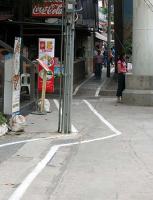
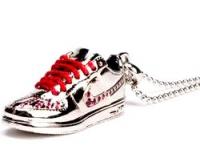
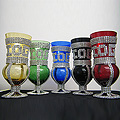
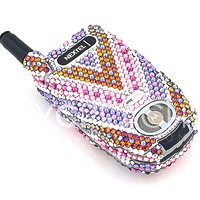


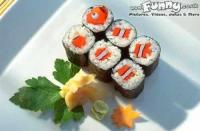







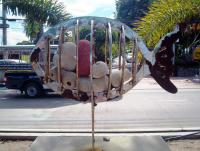
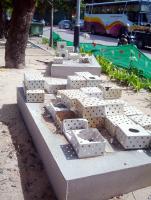

Music Collection
in General Topics
Posted
Sounds like a job for a mnemonic courier.
How long did that take? Someplaces have "ripping services" which will do this for you, maybe US$1 per disc.
"Burned CDs have a relatively short life span of between two to five years". -- Do Burned CDs Have a Short Life Span?, John Blau, IDG News Service, January 10, 2006